News & Commentary
Jul 26, 2020
Take Action Now Against Expanded Policing in Charleston
Over the past two months, police in Charleston have shown that they are less concerned with serving and protecting our communities and more concerned with waging war on the people who live in them.Nearly two months ago on May 31, police in Charleston participated in mass police violence in Marion Square and the Eastside neighborhood, deploying potentially lethal weapons against peaceful protestors and community members. Charleston Police Department Chief Luther Reynolds and Charleston County Sheriff Al Cannon continue to ignore community calls for an apology and investigation into their officers’ actions. The incidents themselves and leaders’ subsequent dismissal of the harm they have caused has deepened already-existing community distrust for police revealed by the racial bias audit of the Charleston Police Department.Earlier this week, the Charleston Police Department, Charleston County Sheriff's Office, and the South Carolina Law Enforcement Division (SLED) announced plans to increase police actions in Charleston, including “pop-up traffic checkpoints” and the activation of the SWAT team for “proactive interdiction patrol,” which the Charleston Police Department defines, in part, as targeting “high-crime areas.” This expansion is happening before a backdrop of nationwide violence from local law enforcement and federal agents against people protesting police brutality and racist policing.No matter what the police say, these actions will not make our community safer. Instead, they will further criminalize Black, Brown and poor people, who are already disproportionately targeted by police in Charleston, and deepen distrust for police in communities that are most impacted by police violence.Despite months of sustained activism against police brutality and targeted over-policing in Black and Brown communities, Chief Reynolds last week asserted that “people don’t want us to depolice, quite the opposite.” In the birthplace of America’s first police force which was originally established as a slave patrol, Chief Reynolds’ claim is a direct dismissal of the outcries of Black people who, for centuries, have been oppressed by the racist foundation and structure of policing in Charleston.On Friday, we joined more than a dozen community partners in signing onto Black Liberation Fund’s open letter to the Charleston Police Department, Charleston County Sheriff's Department, and SLED calling on leaders to listen to people who are targeted by police violence and to stop waging war on Black communities.Now we need your help to ensure that this message is heard loud and clear.Join us in calling on Charleston city leaders to block this police expansion and, instead, to allocate additional resources to things that will actually improve public safety, like ensuring all people have a roof over their head, comprehensive healthcare, a living wage, and quality public education.Here is what you can do:
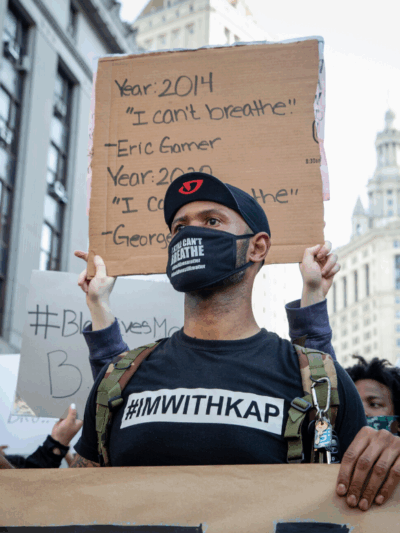
Jul 22, 2020
ACLU of South Carolina Statement on Dangerous Police Expansion in Charleston
Yesterday the Charleston Police Department and Charleston County Sheriff's Office announced plans to increase police actions in Charleston, including ‘pop-up traffic checkpoints’ and the activation of the SWAT team for proactive interdiction patrol.We know what happens when police go down this road, it’s not new. All this will do is further criminalize Black and poor people. For example, while research shows that Black and white people use marijuana at roughly the same rate, Black people are 4.2 times more likely to be arrested for marijuana possession in Charleston County.This police escalation comes nearly two months after Charleston area law enforcement departments participated in mass police violence on May 31 in Marion Square, deploying potentially lethal weapons against people peacefully protesting for racial justice and against police violence. And, later that night area law enforcement continued their violence against Eastside community members. Yet, the Charleston Police department and Charleston County Sheriff’s Office continue to ignore community calls for an apology and investigation into their officers’ actions.The activation of SWAT for proactive interdiction patrols signals an additional concern. As the ACLU found in its report, War Comes Home: The Excessive Militarization of American Policing, the militarization of policing escalates the risk of violence, undermining civil liberties and disproportionately harming Black people.Special Weapons and Tactics teams, commonly known as SWAT, were first created in the late 1960s to address imminent, violent situations that regular law enforcement officers were untrained for, such as hostage and active shooter situations. In the 1980s, approximately 20 percent of small towns in the U.S. had a SWAT team. By the mid-2000s that number had jumped to 80 percent, and by the late-1990s almost 90 percent of large cities had them. The number of SWAT raids also grew at an astonishing pace, from approximately 3,000 a year in the 1980s to approximately 45,000 a year by the mid-2000s. In addition to the massive uptick in their deployment, the mission of SWAT teams has also drastically changed.According to the ACLU's report, as of 2013 79 percent of SWAT deployments were for the purpose of executing a search warrant while only 7 percent were for imminent, violent situations.The deployment of SWAT teams for proactive interdiction patrols shows that Charleston’s police and sheriff’s departments are less concerned with serving and protecting our communities, and more concerned with waging war on the people who live in them.Policing does not make our communities safer — experts have noted that there is no correlation between the number of police and crime rates. Yet, we continue to pour billions of dollars into our police and criminal justice system each year. If our society truly wants to stop the murder and other forms of violence against Black people by police and actually make our communities safer then we must invest in people and communities instead of police and prisons. This will not fix all of our injustices, but it will be a major and necessary start.
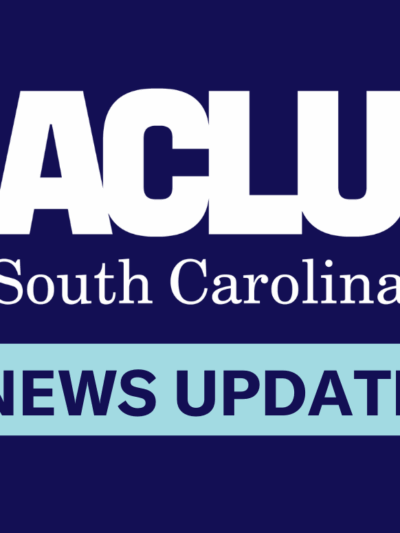
Jul 13, 2020
OP ED: Beyond Banning Chokeholds
This op ed was published by The Times and Democrat on July 12, 2020. Read the full piece here.Orangeburg City Council approved a resolution prohibiting police officers from using chokeholds and strangleholds. The resolution, which was initiated and championed by the Orangeburg Department of Public Safety, also updates the department’s use-of-force policy to require officers to intervene if they witness a fellow officer behaving in a way that is inappropriate, illegal or in violation of department policies.

Jul 03, 2020
More Brutality is Not An Acceptable Response to Protests Against Police Brutality
On Sunday, May 31 we watched as multiple police departments converged in Marion Square to break up peaceful protests calling for racial justice and an end to police brutality against Black people. Law enforcement’s response to a non-violent protest about police violence was pure and unnecessary brutality.The police violence we witnessed first-hand matches the videos we’ve seen of police violence that occurred later that evening in Charleston’s Eastside community, where officers carried on their brutality against Black community members.The weapons that law enforcement used to indiscriminately brutalize people in Marion Square and the Eastside can and have killed people and caused other long-term health consequences. Additionally, experts have clearly warned that the use of tear gas threatens to worsen the spread of COVID-19, which we know is disproportionately impacting Black and Brown communities. This excessive, unprovoked police action is a part of a pattern that cannot be ignored.We are united in solidarity with Charleston’s Eastside and all of South Carolina’s communities who face police violence. Calls for accountability have been met with silence from Charleston Police Chief Reynolds and other local and statewide law enforcement leaders whose officers executed this pattern of violence. It is unconscionable that law enforcement have chosen to respond to community concerns about police violence with silence.Police brutality has a long history in America. Throughout history, our laws and political leaders have protected the oppressor over the oppressed — from punishing abolitionists instead of slave owners, to punishing opponents of mass incarceration and police violence instead of those who perpetuate it.The police violence witnessed by Eastside community members was not an anomaly. Our policing system isn't broken — it's working as it was designed. Police have been, and continue to be, a key mechanism for enforcing many of these racist and exploitative policies. Coming to terms with that means recognizing that the system has to be completely dismantled so that Black people can finally live freely and without fear in this country.Law enforcement actions on May 31 made another great case for why we must drastically reduce policing in our society, especially in communities of color that historically have been over-policed. It's time for Charleston’s political leaders to listen to and learn from those directly harmed by police violence and to finally build a Charleston that is safe and just for all.

Jun 09, 2020
ACLU of South Carolina Joins Request for UN Investigation of the Escalating Situation of Police Violence and Repression of Protests in South Carolina and across the United States
Yesterday, we joined the families of George Floyd, Breonna Taylor, Michael Brown, and Philando Castile, and over 600 human rights groups in demanding the United Nations Human Rights Council swiftly convene a special session to investigate the escalating situation of police violence and repression of protests in the United States.As we wrote last week, multiple South Carolina law enforcement agencies have responded to non-violent protests about police violence with more violence. We have observed police officers actively pursue peaceful protestors, making arrests and firing projectiles and chemicals.

Jun 06, 2020
Police Violence, Curfews, and the Silencing of Protest (against Police Violence) in South Carolina
Since the Minneapolis Police Department murdered George Floyd on May 25, law enforcement in South Carolina and across the nation have responded to non-violent protests against police violence with more violence.
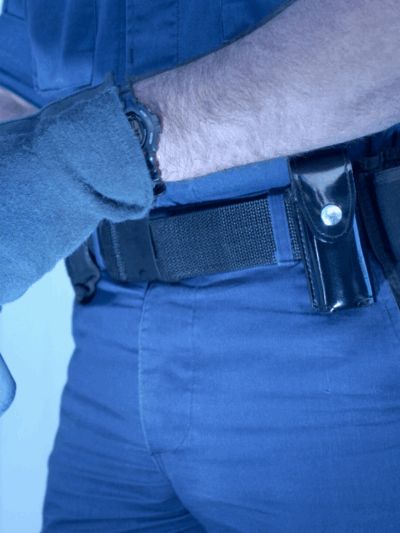
Jun 04, 2020
OP ED: Safe and just communities require fewer police and more services
This op ed was published by the Charleston City Paper on June 4, 2020. On Sunday afternoon, multiple police departments converged in Charleston, S.C. to break up peaceful protests calling for racial justice and an end to police brutality against black people. Their actions made another great case for why we must drastically reduce policing in our society, especially in communities of color that historically have been over-policed. Their response to a non-violent protest about police violence was pure and unnecessary brutality. It was both unbelievable and predictable. Read the full piece here.

Jun 02, 2020
We're Calling on Charleston Area Law Enforcement Leaders to Apologize for Using Excessive Force Against Non-Violent Protestors in Charleston Sunday
We sent a letter today to the leaders of law enforcement agencies whose officers participated in violent actions against non-violent protestors in Charleston on Sunday, May 31. We observed as police officers actively pursued peaceful protestors, making arrests and firing projectiles and chemicals. The brutality we witnessed matches additional complaints we have received from individuals in Charleston and other parts of South Carolina. These actions were clear, dangerous, and counterproductive responses to people exercising their Constitutional rights. Our letter calls for a public apology for officers’ actions, plan for investigating and holding officers who used excessive force accountable, and steps agencies will take to protect and ensure the fundamental right to protest.
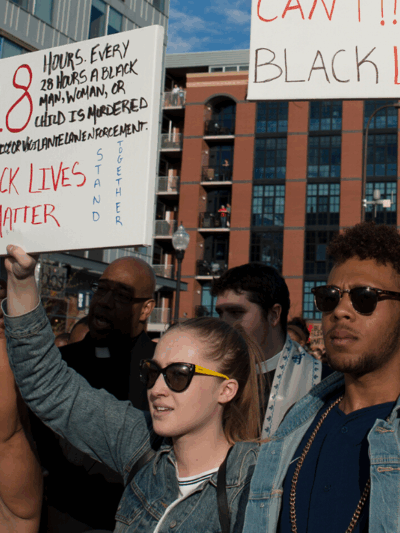
Apr 22, 2020
Nearly 100,000 more people could die from COVID-19 in jails and surrounding communities if states fail to reduce jail populations. The time to act is now!
South Carolina’s jails and prisons alike have too often become our society’s solutions for people struggling with homelessness and mental health or substance use disorders. Our jail and prison logs are a daily reminder that our criminal justice system is a racist system that stops, arrests, convicts, and incarcerates Black people at staggering rates compared to white people.With COVID-19, our failings as a society leave each of the nearly 30,000 people incarcerated in South Carolina’s prisons and jails facing a potential death sentence. That’s because incarcerated people are highly vulnerable to contracting and dying from COVID-19. They are housed in close quarters and are often in poor health. It is impossible for them to follow the social distancing guidelines.For weeks, public health experts have been urging policymakers to do everything in their power to substantially reduce prison and jail populations to safeguard the lives of those who work and live there. The findings outlined in a new report released today by the ACLU amplify the need to reduce South Carolina’s jail populations immediately.The report focuses on a new epidemiological model that shows COVID-19 could claim the lives of approximately 100,000 more people nationwide than current projections stipulate if jail populations are not dramatically and immediately reduced. These projections hold even if communities across the United States continue practicing social distancing and following public health guidance.South Carolina’s unfortunate embrace of mass incarceration makes this problem even more dire. We’re talking about approximately 10,000 people in South Carolina’s jails alone.Here are three things that our judges, solicitors, law enforcement, and local political leaders can do immediately to substantially reduce South Carolina’s jail population.First, review all people currently held pretrial and immediately release on a personal recognizance bond all but the very few people where pretrial detention is absolutely necessary to ensure the person’s return to court or public safety. Approximately 75 percent of the over 10,000 people in South Carolina’s jails are incarcerated only because they are too poor to afford their bond. These people have not even been convicted of a crime.Second, end the war on marijuana. As we reported on Monday, South Carolina has the second highest rate of marijuana possession arrests in the country. Every 15 minutes somebody is arrested for possessing marijuana in South Carolina - a substance that is legal or decriminalized for personal use in 26 states and the District of Columbia. As we work toward the legalization of marijuana statewide, our local leaders, from solicitors, to city and county leaders, to police chiefs and sheriffs, can immediately stop enforcing South Carolina’s marijuana possession laws. That’s a reduction of around 34,000 arrests each year.Third, prohibit the use of arrests unless necessary to prevent imminent and serious bodily harm to another person and all non-incarceration alternatives have been exhausted. This would not only reduce unnecessary incarceration, but also strengthen trust in law enforcement - a key component to advancing public safety. As the Vera Institute of Justice noted, in “communities where distrust in police is high, people are less likely to report a crime or offer witness testimony, which impedes effective policing.”For weeks we have asked our South Carolina’s political leaders to listen to the experts and take immediate steps to reduce our incarcerated populations. Our political leaders are running out of time, as we saw yesterday moments after we, along with our pro bono partners at Arnold and Porter, filed a lawsuit seeking the release of people at heightened risk of contracting and dying from COVID-19 in South Carolina’s prison system. Shortly after we filed the lawsuit, the South Carolina Department of Corrections disclosed that a second incarcerated person tested positive for COVID-19 at Kirkland Correctional Institution, leading to a two-week lockdown at the facility. Because Kirkland is the facility where all newly sentenced people come before being sent to another prison, the Department of Corrections has announced that it will not take newly sentenced people for two weeks, leaving additional people warehoused in South Carolina’s jails until Kirkland opens again.As the new ACLU model found, aggressive action and policy change could save as many as 23,000 people in jail and 76,000 in the broader community if we stop arrests for anything but the five percent of crimes defined as most serious by the FBI — including murder, rape, and aggravated assault — and double the rate of release for those already detained.Incarceration should not become a death sentence. The ACLU model shows that a larger catastrophe can be prevented if governors and all system stakeholders drastically reduce their incarcerated populations.We cannot do this alone. Your voice can make a difference. Please click this link to learn how you can take action!
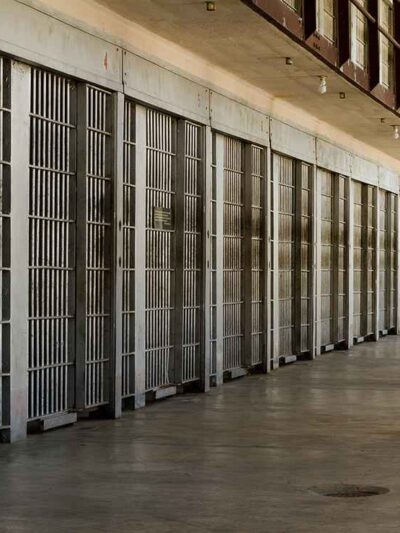
Stay Informed
Sign up to be the first to hear about how to take action.
By completing this form, I agree to receive occasional emails per the terms of the ACLU’s privacy statement.
By completing this form, I agree to receive occasional emails per the terms of the ACLU’s privacy statement.
